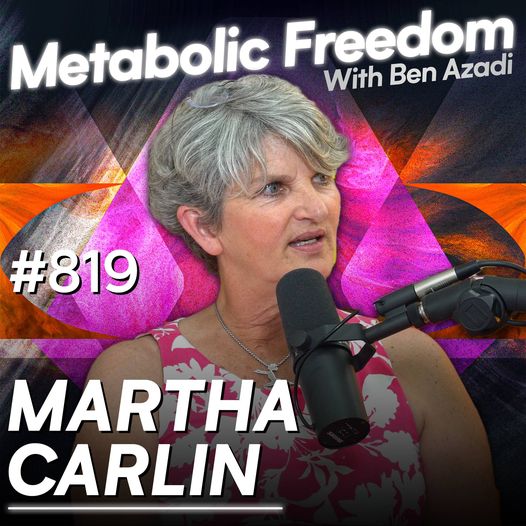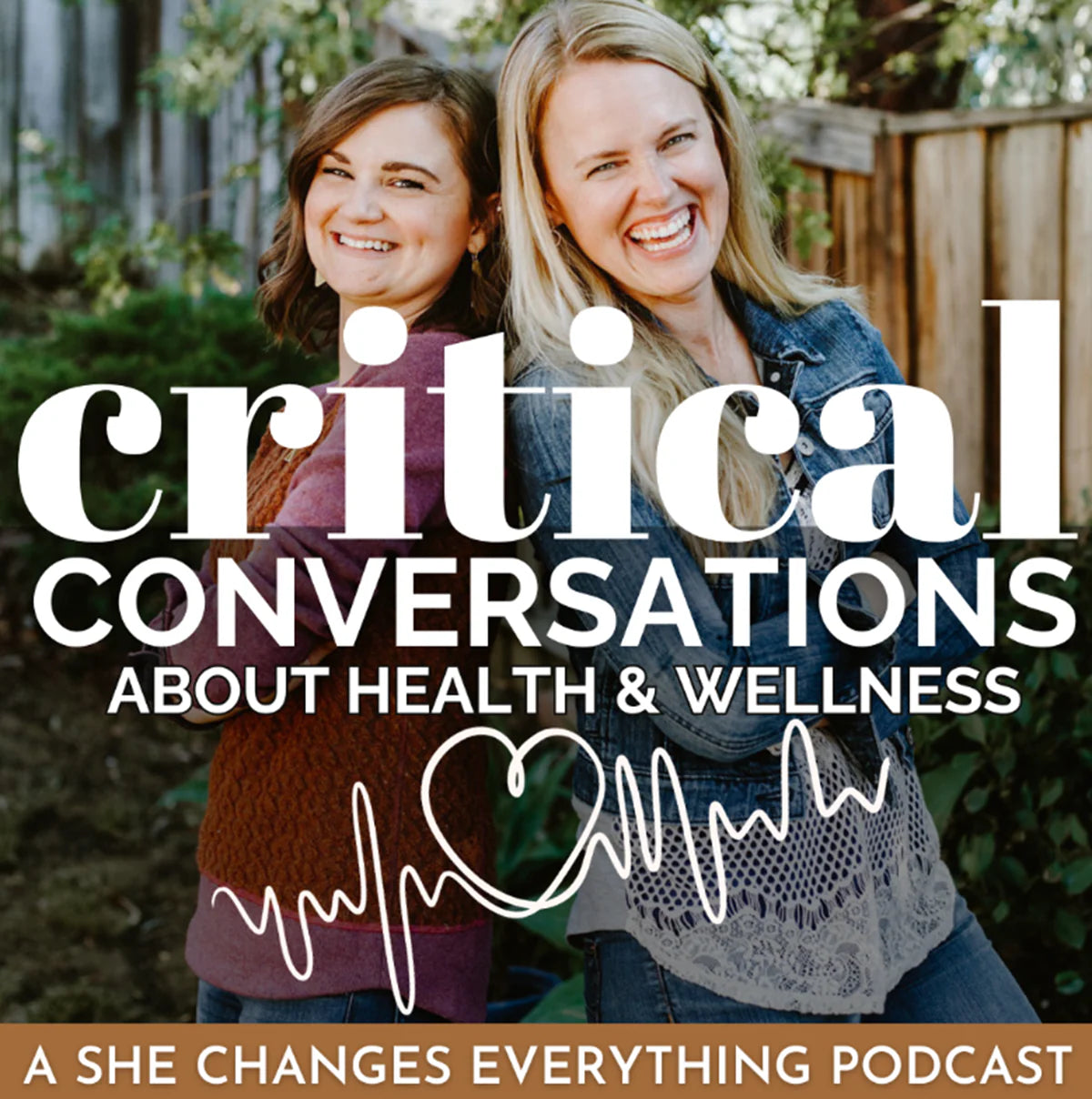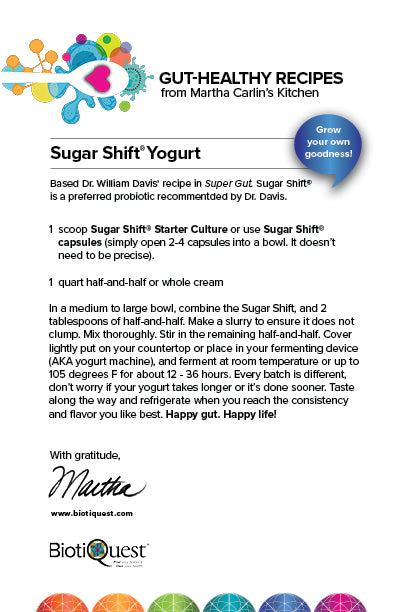
BLOG

BiotiQuest® Gut Health & Probiotics Blog with Martha Carlin
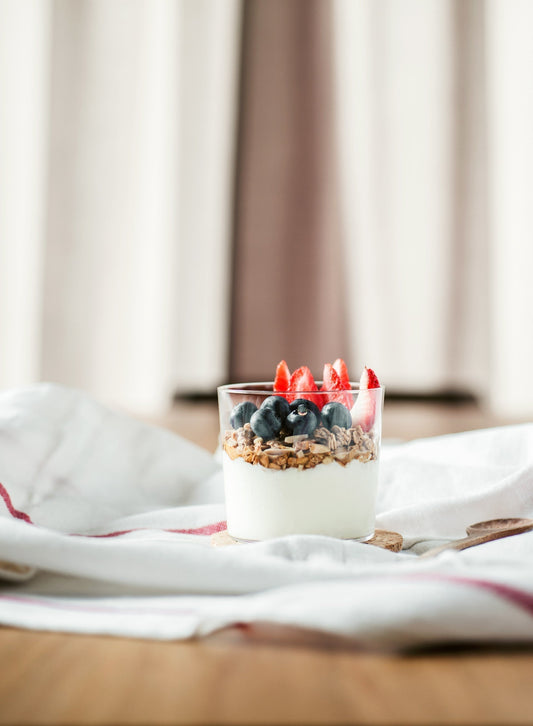
Gut-Boosting Recipes for Mother’s Day Brunch
 Martha Carlin | May 05, 2025 |
Martha Carlin | May 05, 2025 |
Nourishment Through the Seasons of Motherhood When my children were growing up, I didn’t yet have the language of the microbiome—or understand the quiet wisdom of terrain theory. I only...
Gut-Boosting Recipes for Mother’s Day Brunch
Nourishment Through the Seasons of Motherhood When my children were growing up, I didn’t yet have the language of the microbiome—or understand the quiet wisdom of terrain theory. I only knew that food mattered. As I reflect on those early...

The Truth About Sugar and Your Gut: Tips for He...
 Martha Carlin | Apr 28, 2025 |
Martha Carlin | Apr 28, 2025 |
In this blog post we explore what sugar is really doing to your gut health, and share thoughtful alternatives that support your body’s innate intelligence. Because when we consume sugar,...
The Truth About Sugar and Your Gut: Tips for He...
In this blog post we explore what sugar is really doing to your gut health, and share thoughtful alternatives that support your body’s innate intelligence. Because when we consume sugar, especially refined and added sugars, we're not just feeding ourselves....
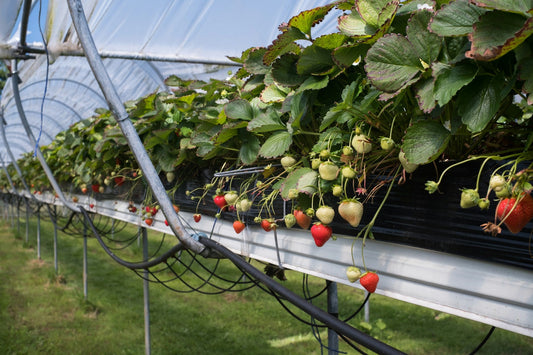
Organic vs. Conventional Foods: What’s Best for...
 Martha Carlin | Apr 21, 2025 |
Martha Carlin | Apr 21, 2025 |
In a world where we’re increasingly aware of what we eat, the question “Is organic worth it?” keeps coming up. But when we shift the focus from labels to gut...
Organic vs. Conventional Foods: What’s Best for...
In a world where we’re increasingly aware of what we eat, the question “Is organic worth it?” keeps coming up. But when we shift the focus from labels to gut health, the question becomes deeper—and more important.

Unlocking the Gut-Brain Connection: How to Impr...
 Martha Carlin | Apr 16, 2025 |
podcast
Martha Carlin | Apr 16, 2025 |
podcast
Coach Debbie Potts is joined by three trailblazing leaders in gut health, cognitive resilience, and cellular nutrition: Martha Carlin – CEO and Founder of BiotiQuest Dr. William Davis – Cardiologist,...
Unlocking the Gut-Brain Connection: How to Impr...
Coach Debbie Potts is joined by three trailblazing leaders in gut health, cognitive resilience, and cellular nutrition: Martha Carlin – CEO and Founder of BiotiQuest Dr. William Davis – Cardiologist, author of Super Gut, and creator of Gut to Glow...
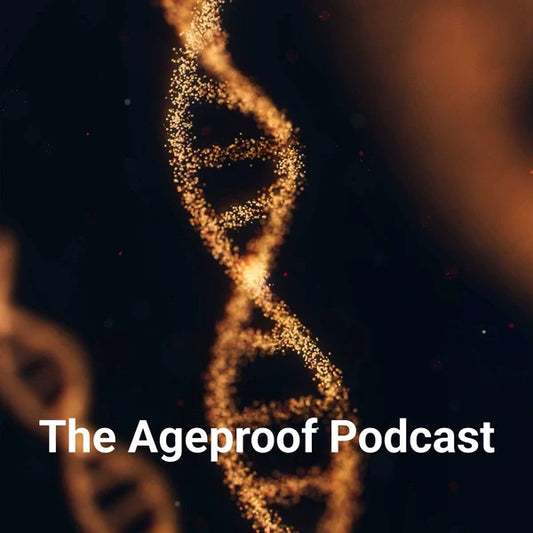
The Ageproof Podcast - Unlocking Chronic Diseas...
 Martha Carlin | Apr 14, 2025 |
podcast
Martha Carlin | Apr 14, 2025 |
podcast
What happens when a business strategist refuses to accept a diagnosis—and instead decides to rewrite the entire paradigm of chronic illness?
The Ageproof Podcast - Unlocking Chronic Diseas...
What happens when a business strategist refuses to accept a diagnosis—and instead decides to rewrite the entire paradigm of chronic illness?

Parkinson’s Awareness: Why We Need to Talk Abou...
 Martha Carlin | Apr 14, 2025 |
Martha Carlin | Apr 14, 2025 |
As we recognize Parkinson’s Awareness Month, it’s time to widen the lens and deepen the dialogue—not just about symptoms, but about systems. And most importantly, about the real, science-backed steps...
Parkinson’s Awareness: Why We Need to Talk Abou...
As we recognize Parkinson’s Awareness Month, it’s time to widen the lens and deepen the dialogue—not just about symptoms, but about systems. And most importantly, about the real, science-backed steps people can take to improve their quality of life today.

Waking Up to a Probiotic Breakfast Can Do Wonders for Your Gut Health
Did you know that recent studies show people with poor gut diversity had lower quality of life? The health of your microbiome impacts your mental health, sleep, energy, the risk for chronic illnesses, and much more. A probiotic breakfast can...

Can Probiotic Supplements Make or Break Your Fast?
Intermittent fasting (IF) may have started as a fitness trend for weight loss, but today it's a go-to lifestyle choice for many. Practicing intermittent fasting has been linked with health benefits such as lowering blood sugar and insulin, preventing heart...












